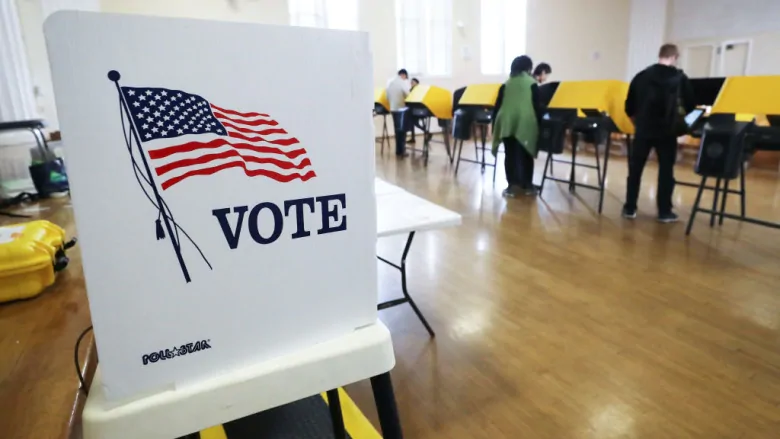California moved up its primary to Super Tuesday, giving the highly populated state a shot at increased relevance in the race for the Democratic Party to choose its presidential candidate.

In a small park at the University of California Bakersfield, a group of about 30 students, volunteers and activists gather around Phillip Agnew, a surrogate for the Democratic presidential candidate some skipped class to support: Bernie Sanders.
“You all will define who is the next president of the United States of America,” Agnew shouts to the crowd assembled around him. He waits dramatically for a beat. “No pressure!” The crowd roars.
The giddy mood can’t just be explained by Sanders’s position at the top of the polls ahead of Super Tuesday in California, where he has double the support of his nearest challenger for the Democratic nomination, Elizabeth Warren.
In primaries past, the country’s most populous state has punched well below its weight. In 2016, for instance, California didn’t vote until early June, long after it was clear Hillary Clinton had the nomination all but sewn up.
Moving the primary three months earlier to join 14 other jurisdictions today on Super Tuesday has been an injection of relevance and excitement in the state’s contest. Now millions of California voters are acutely aware of the central role they could play: for the first time in decades, the California primary could decide it all.
“It feels good because now my voice is officially counted,” said Penelope Valle, an 18-year-old UC Bakersfield student.

She said she’s excited that California voters no longer feel redundant or “overshadowed” by results in so many smaller states. “Being able to make a bigger impact is great.”
The impact could be massive: California offers roughly 20 per cent of the 1,991 pledged delegates a candidate needs to secure the Democratic nomination.
And that, says longtime Democratic strategist Douglas Herman, has changed the way some candidates have approached campaigning in the Golden State.
“You’ve always seen the fundraising stops in California,” Herman said. “It’s been traditionally an ATM for the Democratic Party. I think that what you’ve seen this cycle have been a lot more real events and real opportunities for candidates. And that has changed. That’s different than it’s ever been before.”
Herman, a partner at the Strategy Group political consulting firm, said California is such a large state, it’s often difficult for candidates to distinguish themselves through their ground game.
Some candidates, such as Joe Biden, seem to have given it a miss altogether. His campaign is hoping to capitalize on the m

